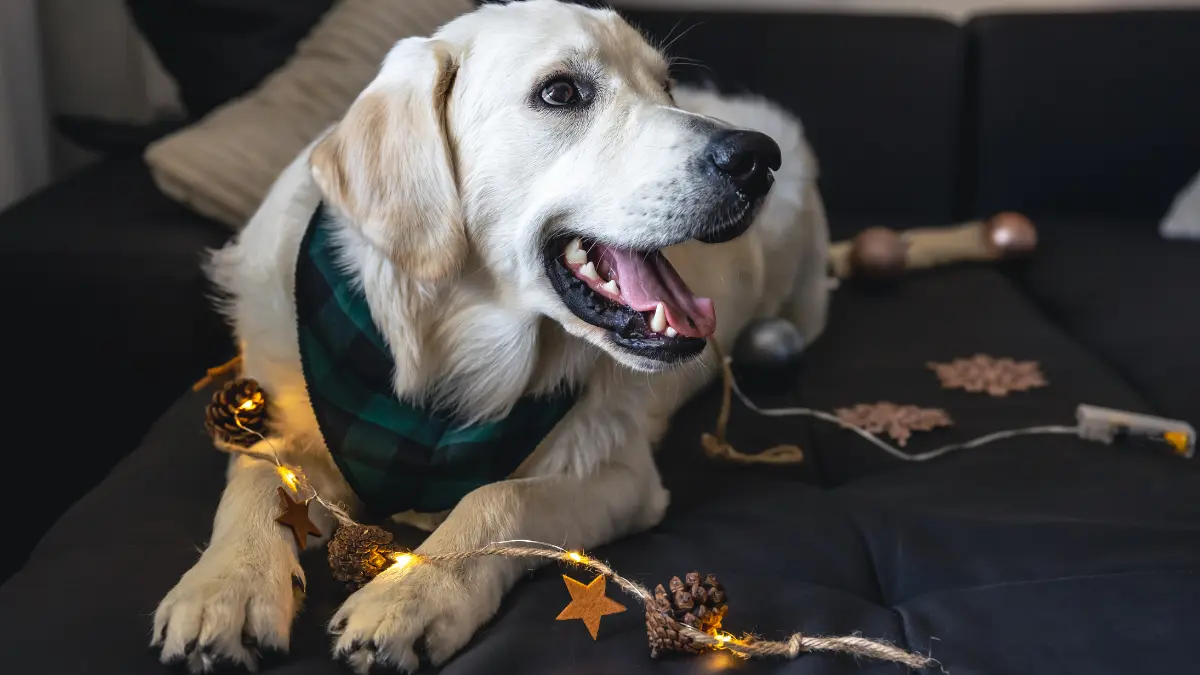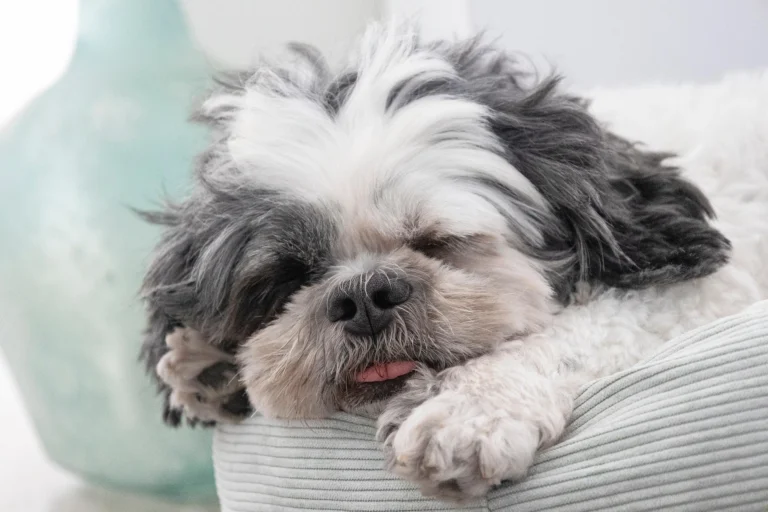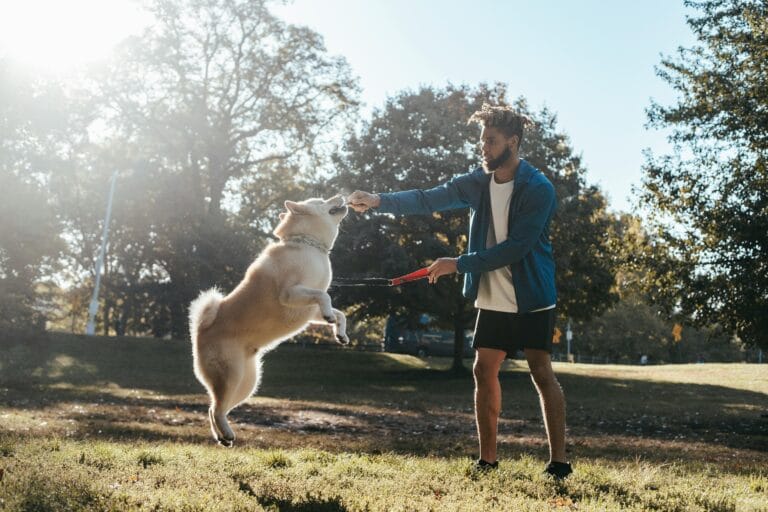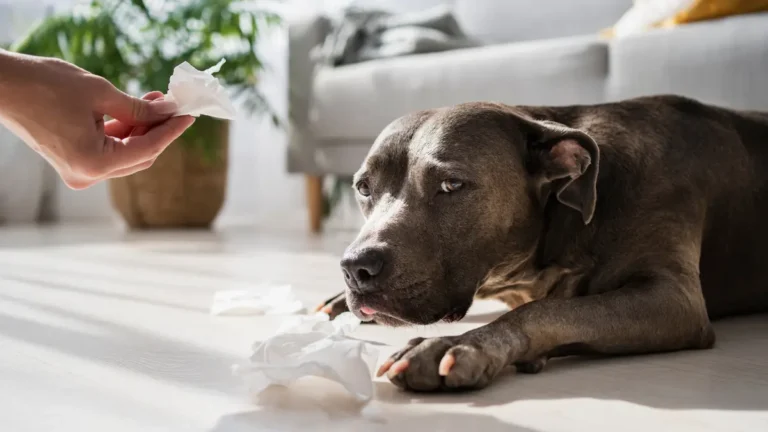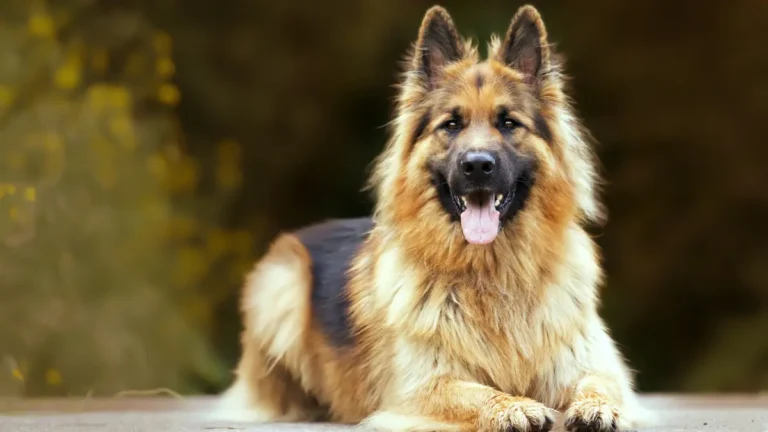Many dog owners wonder, “why is my dog panting at night?” While occasional panting is normal, consistent or excessive nighttime panting could signal discomfort, stress, or even an underlying health issue. This comprehensive guide explores the potential causes of dog panting at night, including health concerns, behavioral triggers, and tips on how to stop dog panting at night to keep your pet comfortable.
Table of Contents
Understanding Why Dogs Pant at Night
What Is Dog Panting?
Panting is a natural cooling mechanism for dogs. Since they have minimal sweat glands, panting helps regulate body temperature and release excess heat. However, if your dog is panting for no reason, especially at night, it could indicate stress, discomfort, or an underlying health issue.
Causes of Nighttime Panting
Environmental Factors
1. Heat and Temperature
Even if the temperature feels fine to you, dogs—especially those with thick coats—may struggle with heat. Senior dogs panting at night is often linked to difficulty regulating body temperature.
2. Sleeping Environment
A stuffy room or uncomfortable bedding can lead to dog panting while sleeping. Ensure their space is cool and ventilated to help them stay comfortable.
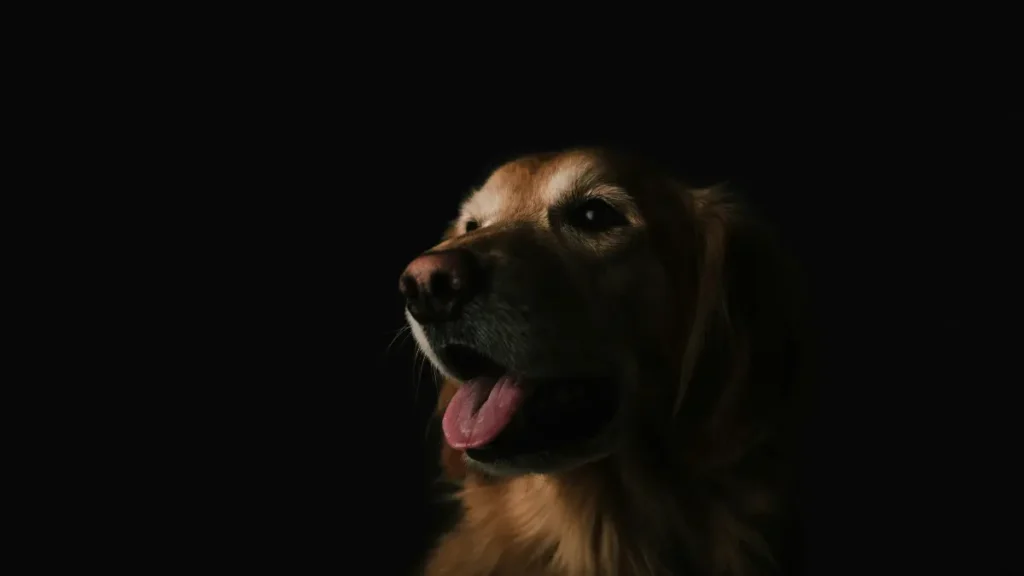
Behavioral Triggers
1. Anxiety and Stress
- Why is my dog panting so much at night? Anxiety is a common cause. Loud noises, changes in routine, or separation anxiety can cause nighttime panting.
- Female dogs may exhibit panting behaviors during heat cycles or pregnancy due to hormonal changes.
2. Overstimulation
Late-night activities or vigorous exercise can leave your dog panting while resting as they recover from physical exertion.
Medical Concerns
If your dog’s panting is frequent and seems unusual, medical conditions might be the cause.
1. Dehydration
A dog panting at night and drinking lots of water may be dehydrated from excessive heat or an underlying medical condition, such as kidney problems.
2. Heart and Respiratory Problems
Heart disease or lung conditions can cause poor oxygen circulation, leading to frequent panting. Dogs with respiratory issues may struggle to breathe, prompting them to pant more.
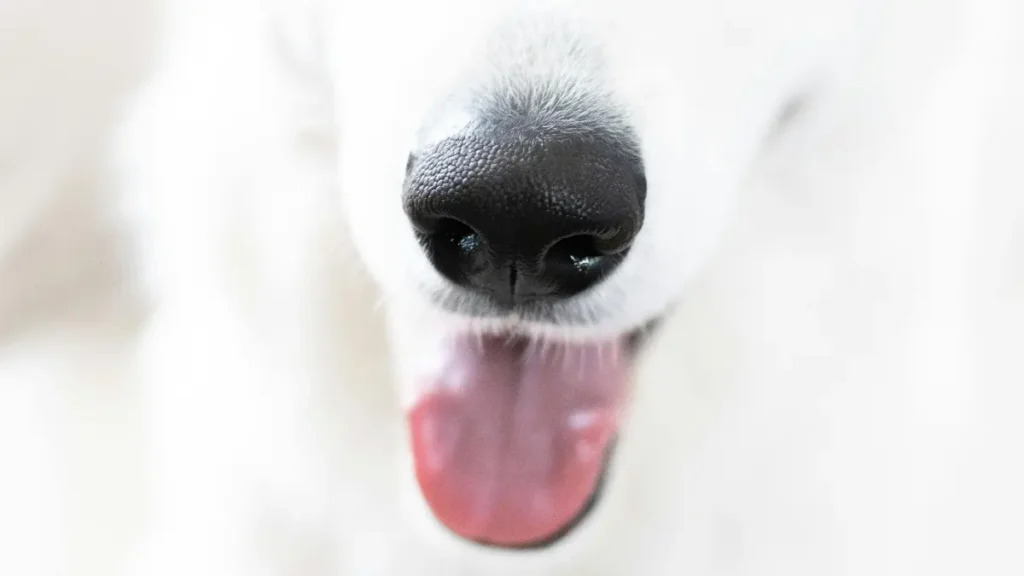
3. Hormonal Disorders
Conditions like Cushing’s disease or hypothyroidism can cause unexplained panting, especially in older dogs.
4. Pain or Injury
Dogs experiencing pain may pant as a coping mechanism. This is especially common in senior dogs with arthritis or joint issues.
Why Is My Dog Panting While Resting or Sleeping?
If your dog pants even during rest, it could indicate hidden stress or discomfort. Behavioral factors like anxiety or recent environmental changes may contribute, but medical causes such as respiratory distress or internal pain shouldn’t be ruled out.
How to Stop Dog Panting at Night
If your dog’s panting at night becomes frequent or disruptive, follow these actionable steps to provide relief:
Adjust Their Environment
1. Keep Them Cool
Use fans, air conditioning, or cooling mats to create a comfortable sleeping area.
2. Provide Fresh Water
Hydration is key. Ensure they have access to clean water, especially if they’re panting and drinking more.
Address Anxiety
1. Establish a Routine
A consistent schedule can reduce nighttime anxiety, helping your dog relax.
2. Use Calming Products
Consider anxiety jackets, calming sprays, or soothing sounds to ease restlessness.
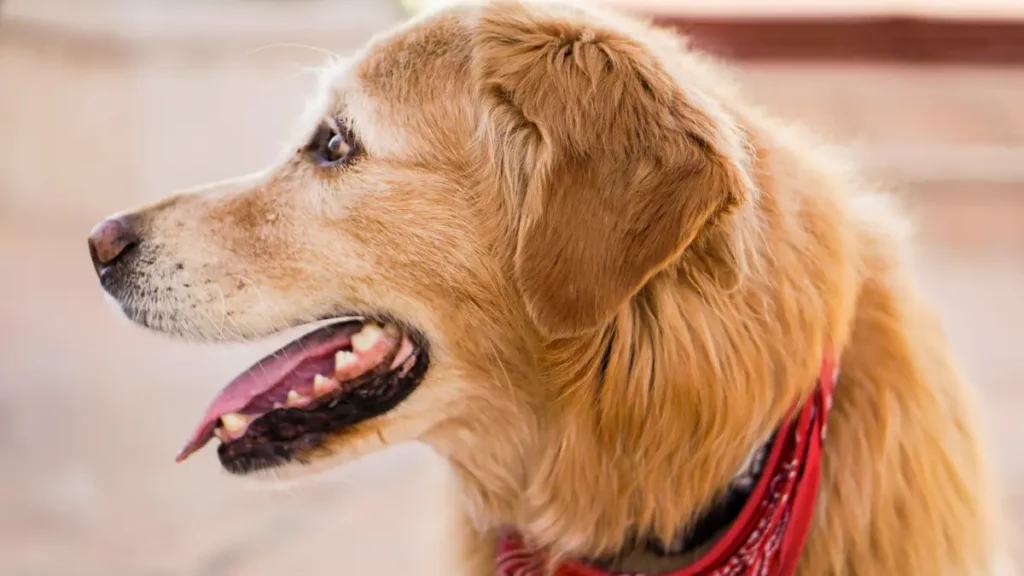
Monitor Their Diet and Activity Levels
1. Avoid Late-Night Exercise
Engage in high-energy activities earlier in the day to prevent overstimulation at night.
2. Offer a Balanced Diet
Proper nutrition supports energy and hydration without causing discomfort.
When to Seek Veterinary Care
If you’re still asking, “why is my dog panting at night?” despite trying these strategies, it may be time for a vet visit.
Warning Signs to Watch For
- Persistent panting with unusual behaviors, such as pacing or lethargy.
- Changes in gum color, such as pale or blue gums, which can indicate oxygen deficiency.
- A senior dog panting at night consistently, as this could signal age-related health concerns like arthritis or heart disease.
Prevention Tips for Nighttime Panting
Regular Health Check-Ups
Routine veterinary visits can detect and address issues like respiratory problems or metabolic disorders before they worsen.
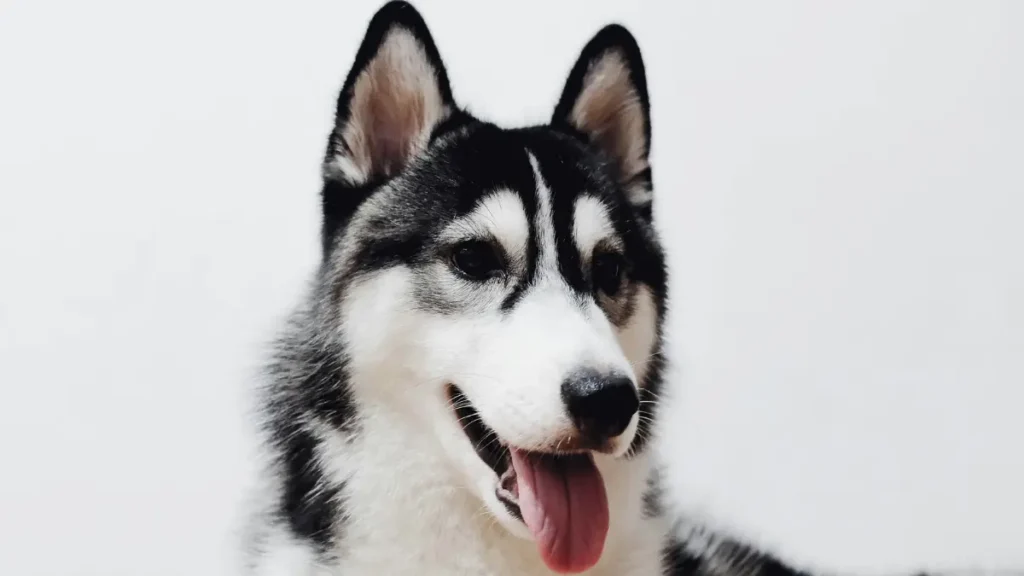
Pay Attention to Behavioral Changes
Keep an eye on signs of stress, anxiety, or pain, such as dog panting and pacing at night. Early intervention is key.
Create a Comfortable Sleeping Space
Invest in orthopedic beds or cooling mats, especially for senior dogs, to ensure they’re cozy and supported throughout the night.
How to Calm a Panting Dog
If your dog is visibly stressed, take immediate steps to calm them:
- Speak in a soothing tone and avoid sudden movements.
- Offer a favorite toy or treat to distract them.
- Apply gentle pressure using an anxiety wrap or blanket.
Conclusion
Understanding why is my dog panting at night is vital for addressing their needs. While some causes are harmless, such as heat or minor anxiety, persistent or unexplained panting may indicate a deeper issue. By identifying the triggers and implementing the right solutions, you can ensure your dog enjoys a comfortable and restful night. If you’re curious about other common dog behaviors, check out our articles on why dogs lick their paws and how to stop it and why does my dog smell like fish. When in doubt, always seek veterinary advice to rule out serious health concerns.

